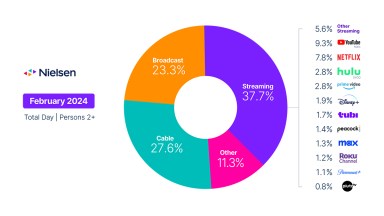When history is set, former NFL quarterback Colin Kaepernick’s decision to kneel during the Star-Spangled Banner back in 2016 to protest reported police brutality and oppression against people of color, it will be viewed as a key moment in the long fight for racial equality in the U.S. Almost four years later, as tensions around racial injustice couldn’t be higher, the sports industry remains a key arena for activating awareness and positive change.
Importantly, Kaepernick’s action was a catalyst for important conversations, many of them outside professional sports. His protest set the stage for a seismic shift in attitudes, resulting in broad awareness of systemic racism. It also fueled growing support for the Black Lives Matter movement, and that support is notably strong among professional sports athletes as well as the fans who cheer for them.
Leveraging their visibility, many professional athletes have taken a leading role in amplifying Black Lives Matter protests and speaking out about racism and police brutality. Examples include Carmelo Anthony, Serena Williams, Leonard Fournette and Huston Street. But it’s not just the athletes who are passionate about the movement: Fans are too, most notably those who consider themselves NBA, MLS and NFL loyalists, according to findings from Nielsen’s recent “Promoting Racial Equality in Sports” study.
In addition, many athletes have pledged funding to the Black Lives Matter movement and similar racial justice causes. Former NBA superstar Michael Jordan, for example, has pledged $100 million over 10 years to groups that pursue racial equality and social justice. While basketball fans regard Michael Jordan as NBA royalty, fans of MLS and NHL are actually more giving when it comes to personally supporting the Black Lives Matter movement with their own time and money.
“New insights into fandom, such as which league followers are most generous in their giving to causes like Black Lives Matter, hold massive potential to guide more data-driven and informed decision-making,” said Lyndon Campbell, Senior Vice President, Head of Sports Leagues and Rights Holders at Nielsen Sports. “Leveraging this intelligence, sports properties and teams as well as brands that are activating through sponsorship, TV broadcasts and social media, have new opportunities to realize competitive advantages.”
Interjecting one’s self and personal opinions into conversations that divide groups of people can be a risky proposition, but sports fans across leagues believe professional athletes have an important responsibility to speak out to educate and raise awareness about the Black Lives Matter movement and racial injustice.
In addition to bolstering their personal brands and the stature of the leagues they compete in, athletes who champion racial injustice can effectively engage audiences that want to align with similarly minded brands and organizations. For brands in a very crowded and fragmented media market, it’s increasingly difficult to stand out—especially in front of the right consumers. Knowing which sports fans are most engaged and most willing to get involved enables smarter targeting and fosters more meaningful engagements right from the start. It can also have a positive impact on the bottom line at the same time.
For example, 64% of individuals surveyed in Nielsen’s Promoting Racial Equality in Sports study say they are open to trying new brands that combat social injustice or take the lead in fighting racism. That means there is opportunity to increase share for more than just established brands and organizations. And what’s more, the fans who are engaged on the topic of racial equality are 10 percentage points more likely to try new brands involved in the cause than the general population. And while we know that brand loyalty is fleeting in many categories, loyalty among consumers engaged on this topic are much more loyal to brands similarly engaged than the general public is (62% vs. 54%).
“While the problems of racial inequality and systemic injustice are difficult and sensitive, it is critical to tackle them,” said Campbell. “Brands and rights holders that authentically align with these critical issues as they engage sports fans can drive positive social change while also achieving business objectives. This is the definition of a win-win situation.”
Kaepernick has yet to return to professional football. His protest back in 2016, however, kicked off a massive wave of support for fighting racial injustice. And while he hasn’t returned to the NFL, his action has garnered him massive support from brands like Nike and most recently, Disney. With Disney, Kaepernick will work with minority directors and producers to develop and tell stories that explore issues of race, social justice and equity. And in many ways, this powerful partnership couldn’t have happened without sports.
Download our “Promoting Racial Equality in Sports” study fact sheet for more data and insights.



